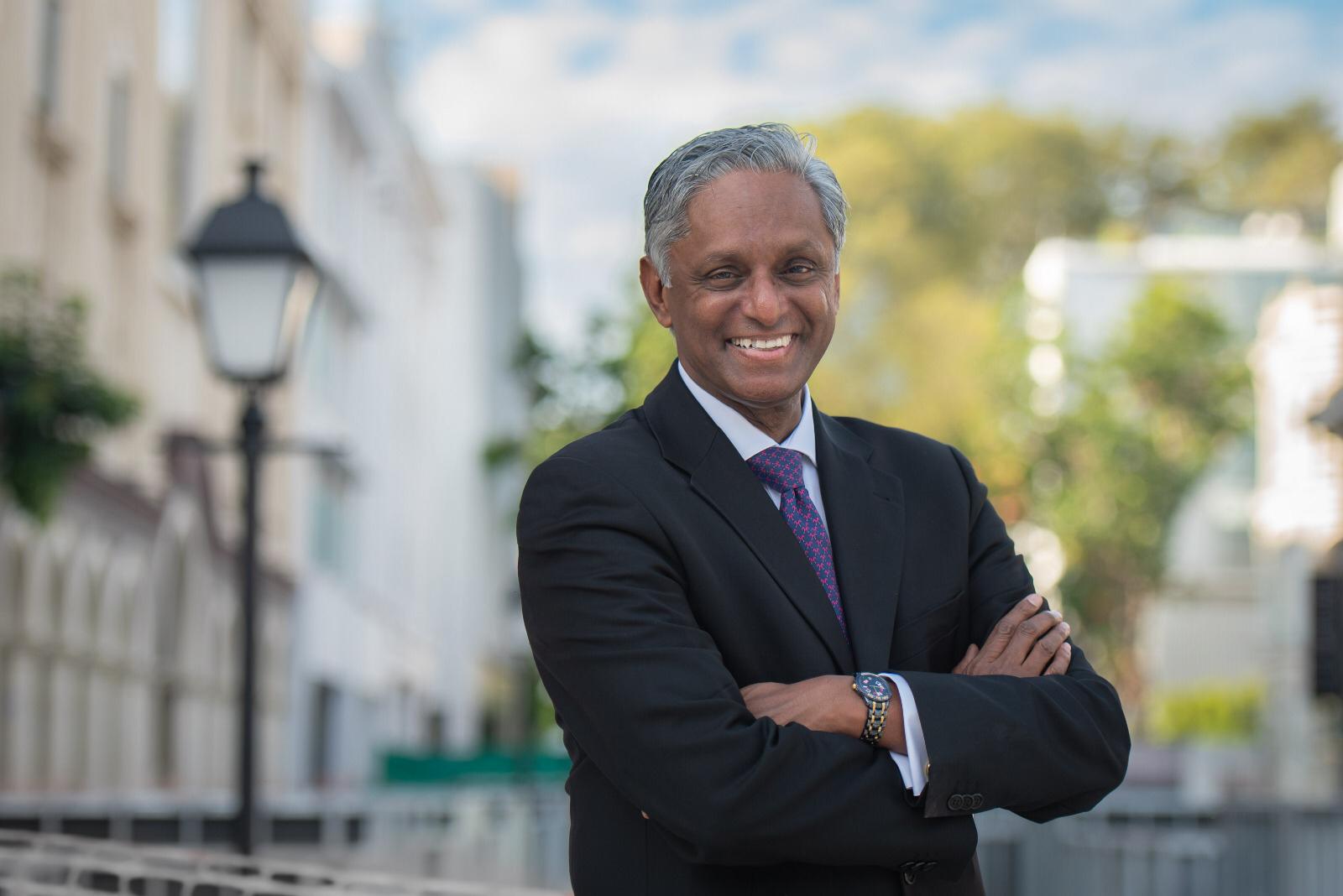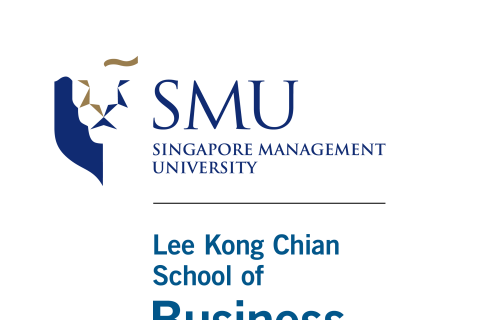
By Alvin Lee
SMU Office of Research & Tech Transfer – In a 2017 United Nations study on international population trends, migration was found to be the primary source of population growth in the developed regions since the 1990s. Net migration from 1950-1970 to 2000-2010 increased from 0.3 million to 3.1 million migrants per year.
However, since 2010, the net inflow of migrants to Europe and North America has fallen. Whereas North America saw a 0.1 million drop per annum, Europe’s net inflow has halved from 1.7 million a year from 2000 to 2010 to 0.8 million per annum between 2010 and 2015.
The difficulty of assimilation in Europe, which are often highlighted by but not restricted to the struggles of the Muslim community, is cited as both cause and symptom of alleged lax immigration laws.
In his upcoming book titled Immigration and Freedom, SMU’s new Dean of the School of Social Sciences (SOSS), Professor Chandran Kukathas, makes the argument that immigration control is not really about controlling the flow of people coming into the country, but about controlling the freedom of citizens within national boundaries.
“Immigration has become an issue because of cultural diversity and the challenges that this has posed to multicultural theory,” explained Professor Kukathas, who took up the position of Dean at the beginning of July. “People cross borders all the time, governments want them to come as tourists and they want football teams to come and play, and they want all kinds of interaction. But governments want to limit people working, the extent to which they can buy property, whether they can go to university, and so on.
“And that may all be fine, but since your own population is inclined to employ people [regardless of their nationality], to educate them, to marry them, in order to control immigration you've really got to control and regulate, and monitor your own society to a much greater degree.”
He added: “We see this increasingly in Western Europe and in North America where the regimes of control have become quite extensive to the extent that there are detention camps all over the place. There are very, very strict labour controls which place important burdens on employers, and so on. This is not to make an argument to say that we should simply forget about controlling immigration, it's really an attempt to explain how immigration control has an effect on a society.”
Identity politics and the fate of liberal democracy
Immigration is a major component of identity politics, which is arguably the biggest issue facing 21st century societies and governments. From the rise of U.S. President Donald Trump to the seemingly never-ending drama that is Brexit, the language of exclusion and “you are not one of us” has taken centre stage in a wave of nationalism that is seen as backlash against two decades of unfettered globalisation post-Berlin Wall.
Globalisation, via multiculturalism policy, has made issues of nationality and identity easier to exploit.
“Governments embraced policies of multiculturalism [in the 1990s and 2000s] which enhanced identification with particular traditions,” explained Professor Kukathas, articulating the rationale that multiculturalism reduced the pressure on immigrants to assimilate, and thus more likely to stay in their adopted country. “For most of human history labour has been a very important asset, and so governments tried to retain populations that they thought might return to their home countries [by] encouraging them to retain their cultural identities.
“Even though governments no longer care about that so much, it's a bit too late because in places like Australia the politics of cultural identity is a part of the political landscape.”
Globalisation, Professor Kukathas further elaborated, also made it easier for immigrants “to stay in contact with the people and the traditions that they've left”. “In the 19th Century,” he told the Office of Research & Tech Transfer, “if as an Italian you moved to the United States, you pretty much had to assimilate until there were enough Italians there. And if you moved from a very small minority tradition you probably assimilated completely, because there was not really much option.
“But now people can move, they can congregate in larger numbers, they can stay in touch with people from the places from which they've come.”
Politicians worldwide have rode into office on a wave of nationalism, many of them unabashedly authoritarian. From Europe (Italy, Austria, and Hungary being the most obvious in a list of many) to South America (Brazil and Venezuela) to the United States, one could be forgiven for proclaiming the 21st century the death knell of liberal democracy.
Professor Kukathas offered a historical perspective.
“What we need to understand about liberal democracy is that it's really quite a new phenomenon,” he said, pointing to the mid-1700s as the earliest point where modern liberal democracies existed, mostly in parts of Europe and North America. “If you want to go wider into Europe we didn't really have liberal democracy until the early parts of the 20th Century.
“And that's taking a very, very generous definition of liberal democracy given the nature of many of the regimes that are nominally liberal and democratic, which are turned into not so democratic regimes. Nazi Germany is the obvious one, fascist Italy, and so on, so we've only had liberal democracy in a few countries for a matter of decades.”
Singling out Francis Fukuyama’s 1992 book The End of History and the Last Man as “extrapolat[ing] from a very short trend line into a long one without any justification”, Professor Kukathas warned against making the same mistake in the opposite direction.
So how do we fix the liberal democracy model? Can it be fixed?
“No it can't be fixed, the reason for that is simply that no one controls the world, no one controls any society,” he conceded. “I think it is a valuable thing to try to understand the way the world is, because that might temper one's expectations and make one a little bit more tolerant of the way things are.
“Because I think one lesson I really hope to impart is that there's a limit to our capacity to control things, whether as individuals or even as a collective. The world is a very complex place.”
Looking ahead
That complexity will provide plenty of fodder for research within SOSS where Dean Kukathas is working on establishing a research identity. While conceding it would be impossible to do so simply as “a school of psychology or a school of political science, or a school of sociology”, he is keen to explore possibilities of greater collaboration across the different disciplines within SOSS.
He said: “Both in disciplinary terms, and in terms of shared research interests or concerns, for example, there might be quite a few people here who are researching the question of international migration. This might be a good basis from which to develop a research programme that brought together these people with different interests, and different strengths to focus on some common problems or some issues that might be addressed best by collaborative work.”
That collaborative and cross-discipline approach, the Dean believes, will be useful in understanding the big picture in an age of hyper specialisation. Specifically, he expounds the role of humanities in “looking further for different perspectives” beyond one’s own disciplinary work to “make sure that as a human being you don’t become trapped in your specialism”.
In that sense it is perhaps no surprise that Professor Kukathas has cultivated interests outside of academia. With three grown up children living on the other side of the world – “One of them has already visited, and the other will visit soon, and hopefully the third one before long” – the Dean is exploring his love of theatre by immersing himself in the local theatre scene. He adds that he has written a number of short stories, mostly for his own pleasure, but they might be published one day.
For an Australian who spent his early childhood in neighbouring Malaysia, making family road trips down to Singapore on “roads that were flooded from the rain”, a stint in Southeast Asia feels like coming full circle.
“I think SMU has a very bright future and I'm very enthusiastic about this opportunity,” he stated. “I have some very, very talented colleagues and I hope that we can put the School of Social Sciences as well as SMU on the map.
“I'm especially enthusiastic about doing this because I've lived essentially in the west for the last 50 years, having left Malaysia, and now I'm back in this part of the world and I'd like to take another look at it from this point of view, so I think that would be very exciting.”
Back to Research@SMU Aug 2019 Issue
See More News
Want to see more of SMU Research?
Sign up for Research@SMU e-newslettter to know more about our research and research-related events!
If you would like to remove yourself from all our mailing list, please visit https://eservices.smu.edu.sg/internet/DNC/Default.aspx

